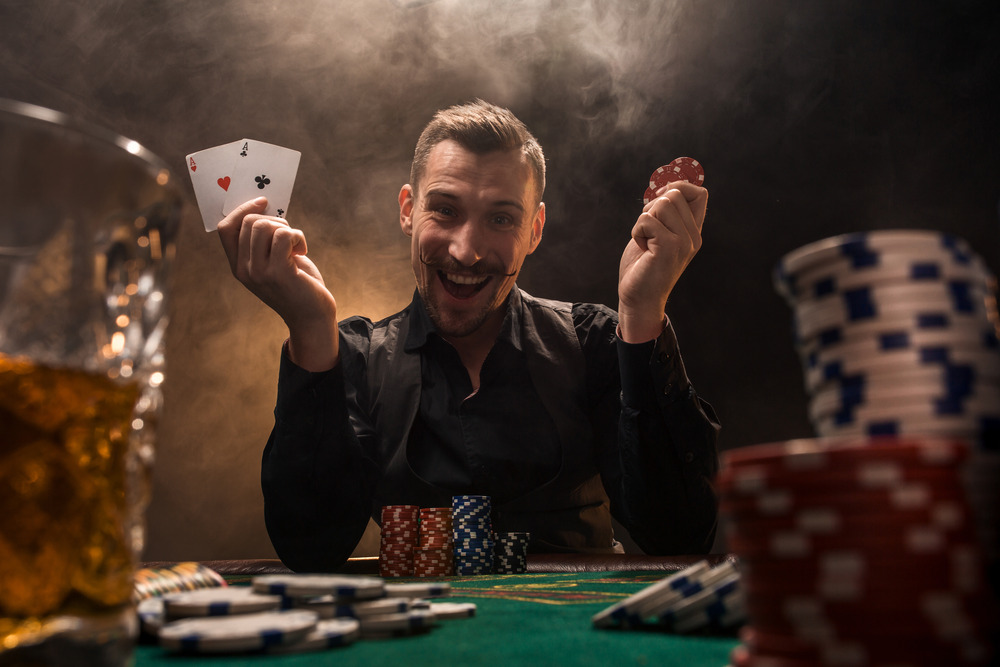Stepping into a casino, one is greeted by vibrant lights, buzzing sounds, and a palpable sense of anticipation. The psychology behind gambling in casinos involves a complex interplay of factors that influence decision-making at the gaming table. These factors include the release of dopamine, a neurotransmitter associated with pleasure and reward, which contributes to the thrill of risk-taking.
Additionally, the social dynamics within a casino environment, such as peer pressure and the desire to fit in, can also impact one’s gambling behavior. By understanding these psychological mechanisms, we can gain insight into why individuals are drawn to the world of chance and uncertainty found in casinos.
The Thrill of Risk-Taking
Gambling in casinos triggers a psychological response related to the thrill of risk-taking. Upon entering a casino, individuals may experience a heightened sense of excitement. Placing bets, witnessing the roll of dice, or the dealing of cards can lead to an increase in adrenaline levels.
The appeal lies in the uncertainty of the outcome and the potential to win despite unfavorable odds in casino games. Neurotransmitters such as dopamine are released in the brain, contributing to feelings of pleasure and euphoria, particularly when favorable outcomes occur.
This inclination towards seeking risks and rewards is a deeply rooted aspect of human behavior, making the attraction of casino gambling compelling for many individuals.
Cognitive Biases in Gambling
Casinos offer more than just entertainment; they tap into cognitive biases that can impact decision-making in gambling.
One prevalent bias is the gambler’s fallacy, which mistakenly assumes that past outcomes influence future ones, leading to irrational choices based on perceived patterns.
The illusion of control bias leads individuals to believe they’ve more influence over random events than they actually do, fostering overconfidence in winning abilities.
Additionally, confirmation bias prompts individuals to seek information confirming their beliefs about winning chances, while disregarding contradictory evidence.
Understanding these biases can help in making more rational decisions while gambling.
Emotional Rollercoaster of Wins and Losses
Navigating the world of casinos involves managing the emotional impact of wins and losses, which can significantly influence your overall experience. Winning can trigger feelings of excitement, accomplishment, and a release of dopamine, potentially leading to addictive behaviors as you seek to replicate that high.
Conversely, experiencing losses can evoke emotions such as sadness, anger, or regret, contributing to feelings of despair and frustration. These emotional fluctuations can impair judgment, prompting impulsive decisions in an effort to recoup losses.
It’s important to recognize and regulate these emotional responses to maintain a balanced and responsible approach to gambling in the casino environment.
Social Influence and Peer Pressure
In a casino setting, social influence and peer pressure can significantly impact individuals’ gambling decisions. The presence of friends or acquaintances who promote risky behavior can influence individuals to make bets they mightn’t otherwise consider.
Observing others winning or losing can create a competitive atmosphere or a desire to conform, leading individuals to take greater risks than planned.
The fear of missing out on the excitement or the fear of social judgment for not participating can also sway decision-making. It’s crucial for individuals to recognize these external pressures and ensure that their choices are guided by personal limits and preferences rather than succumbing to peer influence.
Escapism and Psychological Motivations
Within the environment of a casino, individuals are often attracted to gambling as a means of escapism and to fulfill various psychological needs. Casinos offer not only the appeal of games but also a temporary respite from everyday pressures and concerns.
Participation in gambling can offer a brief diversion from reality, allowing individuals to engage with the excitement of chance and unpredictability. Some may turn to gambling to seek stimulation, alleviate boredom, or manage emotional challenges.
Understanding these underlying psychological motivations can help explain why individuals are drawn to gambling in the stimulating setting of a casino.
Learn about the Importance of table etiquette in poker games here: https://luchshee-online-casino.com/2024/12/23/understanding-the-importance-of-table-etiquette-in-poker-games/.
Conclusion
Understanding the psychology behind gambling in casinos involves a complex interplay of factors such as risk-taking behavior, cognitive biases, emotional responses, social influences, and psychological motivations. This understanding can help individuals navigate the casino environment more responsibly. It is important to manage emotions, recognize cognitive biases, and consider the underlying psychological drivers that fuel the urge to gamble. By staying informed and in control, individuals can enjoy the gaming experience without succumbing to potentially harmful patterns of behavior.

